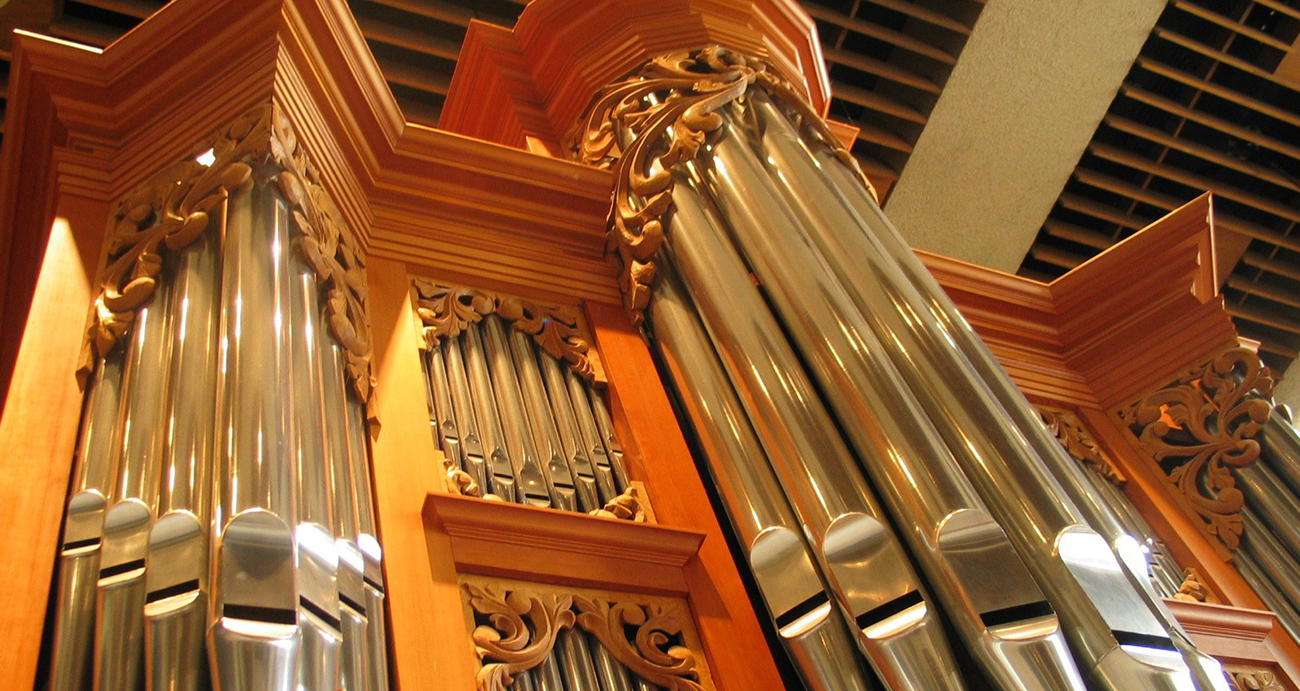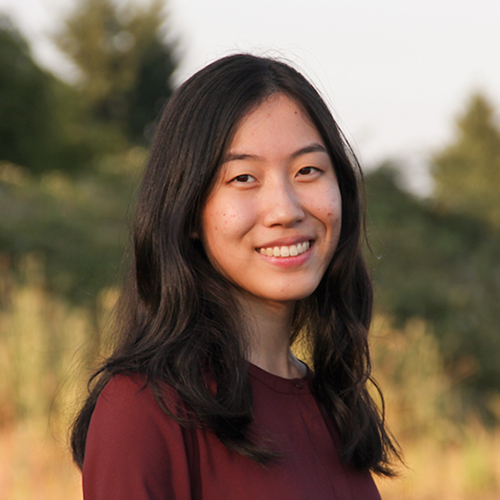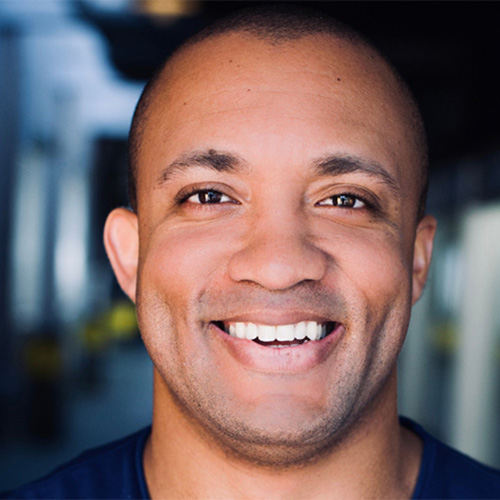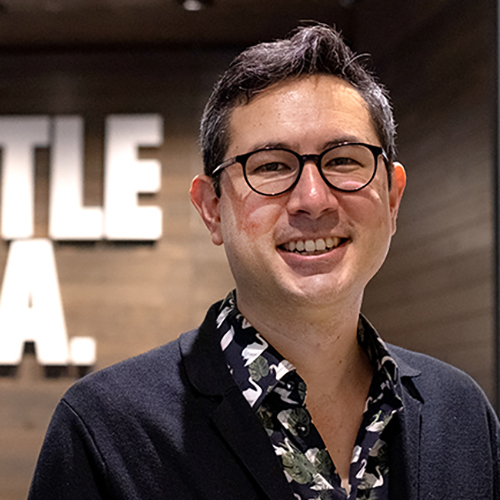As a child, Paul Fritts helped his father build pipe organs as a hobby. He recalls looking through his father’s books on the topic, intrigued by photos of organs dating back to the 1500s. “I was bitten by the bug early on,” he says. “I became fascinated with the legacy of the instrument.”
Fritts and a skilled team have since created custom instruments for churches, residences, and universities in the US and abroad through his company, Paul Fritts & Co. Organ Builders. Among their projects is the Littlefield Organ at the University of Washington, completed in 1990.

Reflecting his lifelong interest in organs, Fritts recently made a $1.5 million gift to the UW School of Music to support its organ performance degree programs.
Inspired by Historic Instruments
Though his father was an organist, Fritts studied violin as a child. He never performed on the organ, despite building and installing more than 50 custom instruments through his company. Yet Fritts was always fascinated by technical and musical aspects of the instrument.
While most musical instruments have basically fixed designs, organs can vary tremendously. They can range from compact to massive, powered with mechanical action or — since the 1900s — electricity. The size and materials used for the pipes, and the techniques used to create them, can greatly impact the tone of the instrument. All of these variables are compelling to Fritts, who has spent years researching and honing fabrication techniques.
...when you hear magic, you have to get to the bottom of what’s creating the sound.
All of Fritts’s organs are historically inspired mechanical-action instruments. His high level of craftsmanship and the beauty of his instruments represent a career-long dedication to reclaiming the best practices of organ building in the 17th and 18thcenturies in Northern Europe, a high point in the history of organ composition and performance. He has visited Europe many times to study — and listen to — organs dating back hundreds of years.

“You hear magic,” Fritts says of those organs. “And when you hear magic, you have to get to the bottom of what’s creating the sound. Oftentimes it’s the environment and acoustics of those spaces, but there’s also magic happening in the organs.”
Examining historic pipes, including the metal alloys used in their fabrication, has informed Fritts’s work and has led to many innovations in his organ building. The UW’s Littlefield Organ, located in Kane Hall’s Walker-Ames Room, was Fritts’s first to use a high percentage of tin in the metal for the façade pipes, much like organs he has seen in The Netherlands and Germany. He explains that the tin pipes produce a somewhat brighter, more colorful sound, with a bit more versatility.
"Our Littlefield Organ is part of the heritage of Fritts organs around the world, each instrument unique but all connected,” says JoAnn Taricani, Aura Bonell Morrison Endowed Professor and director of the School of Music. “We are also linked to the organs of the 1600s and 1700s that Mr. Fritts used as his models for sound and materials of his creations. We are proud to be part of this historic legacy."
Continuing the Legacy
Building the Littlefield Organ was a year-long project for Fritts’s shop, which was smaller at the time than it is now. Other organs have taken his team anywhere from two months to three years to build, depending on the scale and complexity of the project. Each instrument is customized to the space in which it will be used. Fritts has donated instruments as part of his philanthropic giving, but for his UW gift, he realized that endowed support was a greater need.
Fritts made his gift to the School of Music following the retirement of the School’s full-time organ professor, Carole Terry, after 40 years on the UW faculty. The Paul B. Fritts Endowed Faculty Fellowship, one of the largest endowments in the School of Music, will fund instruction in organ, allowing the School of Music to hire a nationally prominent organist.

“The School is delighted to welcome this endowed faculty fellowship and the outstanding organ program it will make possible as a companion to the beautiful Littlefield Organ that was built by Mr. Fritts,” says Taricani. “The organ program has always brought distinguished students to our campus, and this gift will allow our great legacy to continue into future generations.”
Fritts, who funded the fellowship thanks to successful investments made years ago, hopes that others will now step up and add to the endowment. “$4 million is need to fully fund a full-time tenure track position,” he says. “That’s the goal. I’m hoping others will also get excited about this and contribute.”
Another recent gift to the School of Music from an anonymous donor also supports the study of the organ. The $250,000 gift will create a four-year organ competition for early-career organists. Showcasing exceptional young talent, the competition will enable a larger audience to discover and admire the beauty of celebrated organ music.
Meanwhile Fritts will continue to do what he loves most — build organs. His company currently has six years of work lined up. Asked if he has a favorite among the many organs he has already built, he demurs.
“Each of our instruments is a bit like a child,” he says. “It’s the result of a particular time in the shop’s history — who was working on it, the vision for it, constraints with acoustics and budget. I can’t say that I have a favorite.”
More Stories

Two Majors, Complementary Skills
Elizabeth Xiong (2024), a double major in art history and computer science, shares how she gained different and complementary skills from each major.

For Dialect Coach, Every Voice is Unique
As a dialect coach, Tré Cotten (MFA, 2017, Acting) has gained national attention for his ability to help actors bring authenticity to their characters.

Building Connections Through Opera
Lokela Alexander Minami (BA, 2010; MA, 2012) turned a lifelong passion for opera into a career that introduces others to the art form.